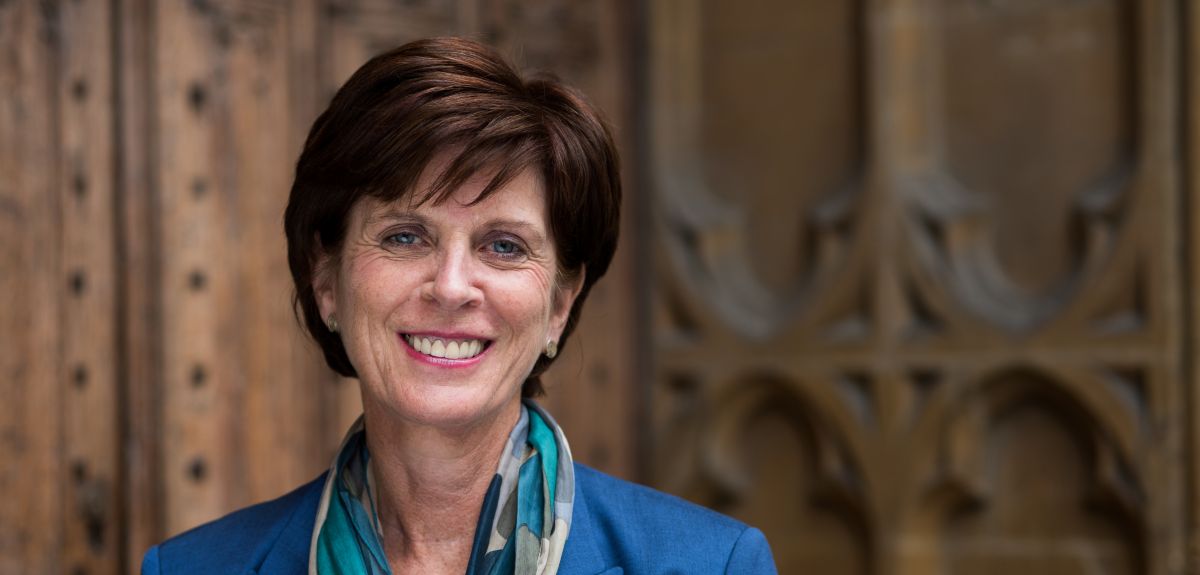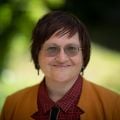
Vice-Chancellor elected to American Academy of Arts and Sciences
Oxford University's Vice-Chancellor, Professor Louise Richardson, has been elected to the American Academy of Arts and Sciences.
A political scientist, Professor Richardson held leadership positions at Harvard University and the University of St Andrews before taking up her role at Oxford in January of this year.
She is among 213 people elected to the 236th class of the Academy, and will be inducted at a ceremony on October 8, 2016 in Cambridge, Massachusetts.
Founded in 1780, the American Academy of Arts and Sciences is one of the oldest learned societies and independent policy research centres in the United States. It convenes leaders from the academic, business and government sectors to respond to the world’s most pressing challenges.
The United Kingdom is currently home to around 180 members, the largest concentration outside of the United States. Since 1782 there have been more than 600 members from UK institutions and British public life. They include mathematician Charles Babbage (1832), naturalist Charles Darwin (1874), poet Alfred, Lord Tennyson (1876), Prime Minister Winston Churchill (1946), and actor Laurence Olivier (1971).
Professor Richardson's fellow international nominees in 2016 include Irish novelist Colm Tóibín, former President of Botswana Festus Mogae, and Swiss composer and oboist Heinz Holliger. Newly elected American members include winners of the Pulitzer Prize and the Wolf Prize, MacArthur and Guggenheim Fellowships, the Fields Medal, the Grammy Award and the National Book Award.
'It is an honour to welcome this new class of exceptional women and men as part of our distinguished membership,' said Don Randel, Chair of the Academy’s Board of Directors. 'Their election affords us an invaluable opportunity to bring their expertise and knowledge to bear on the most significant issues of our time.'
Academy President Jonathan F Fanton, visiting London recently, said 'The American Academy founders, John Adams, James Bowdoin and John Hancock among them, believed that an important part of building a new democratic nation was, in the words of our charter, "to cultivate every art and science which may tend to advance the interest, honour, dignity, and happiness of a free, independent, and virtuous people".
'Our ability to draw on experts from around the world and from every discipline and profession is the Academy’s biggest asset in providing thoughtful, independent and trusted advice to the American nation and beyond.'
 Expert Comment: Is it possible to support both AI innovation and human creativity?
Expert Comment: Is it possible to support both AI innovation and human creativity?
 Professor Sibel Erduran joins prestigious Academy of Social Sciences Fellowship
Professor Sibel Erduran joins prestigious Academy of Social Sciences Fellowship
 Oxford unmasks the fraudsters behind the forgeries for April Fakes Day 2025
Oxford unmasks the fraudsters behind the forgeries for April Fakes Day 2025
 Expert Comment: Can Europe hold the line of liberal democracies?
Expert Comment: Can Europe hold the line of liberal democracies?
 Oxford launches first human aerosol TB challenge trial
Oxford launches first human aerosol TB challenge trial